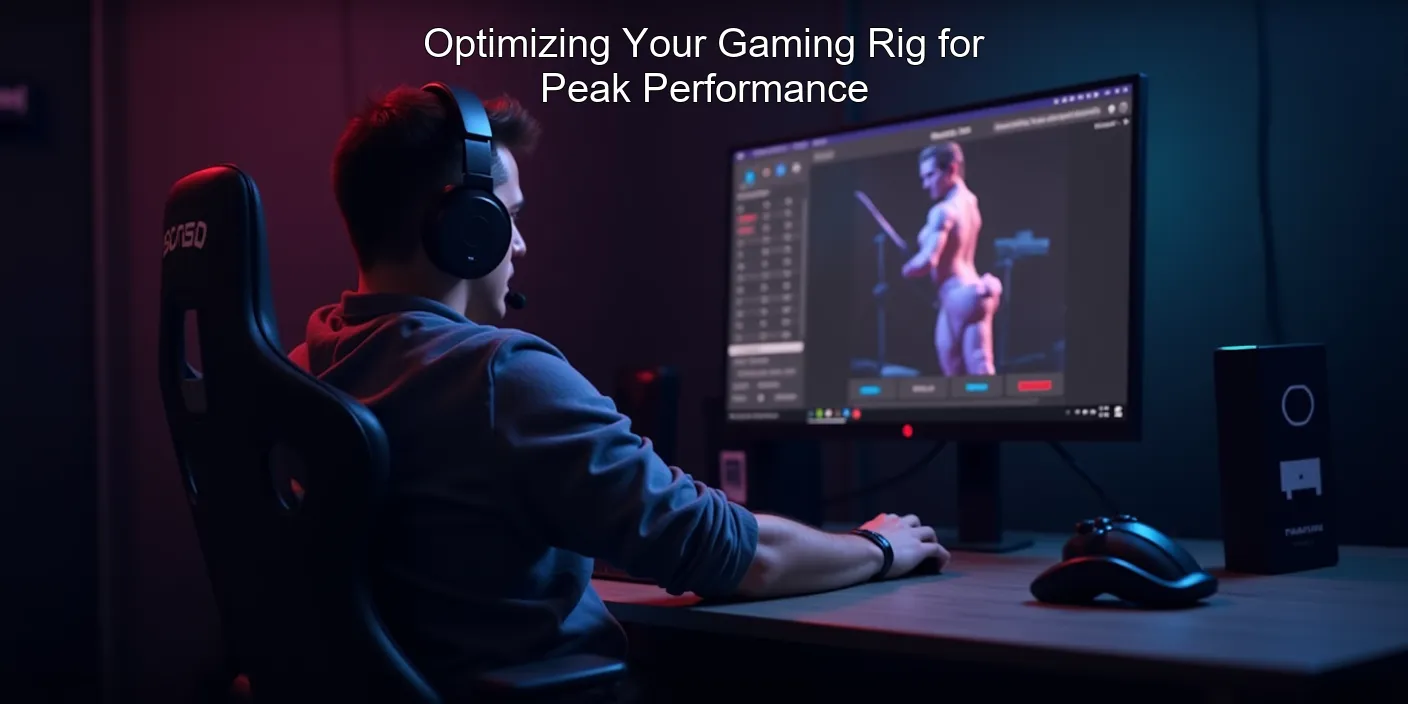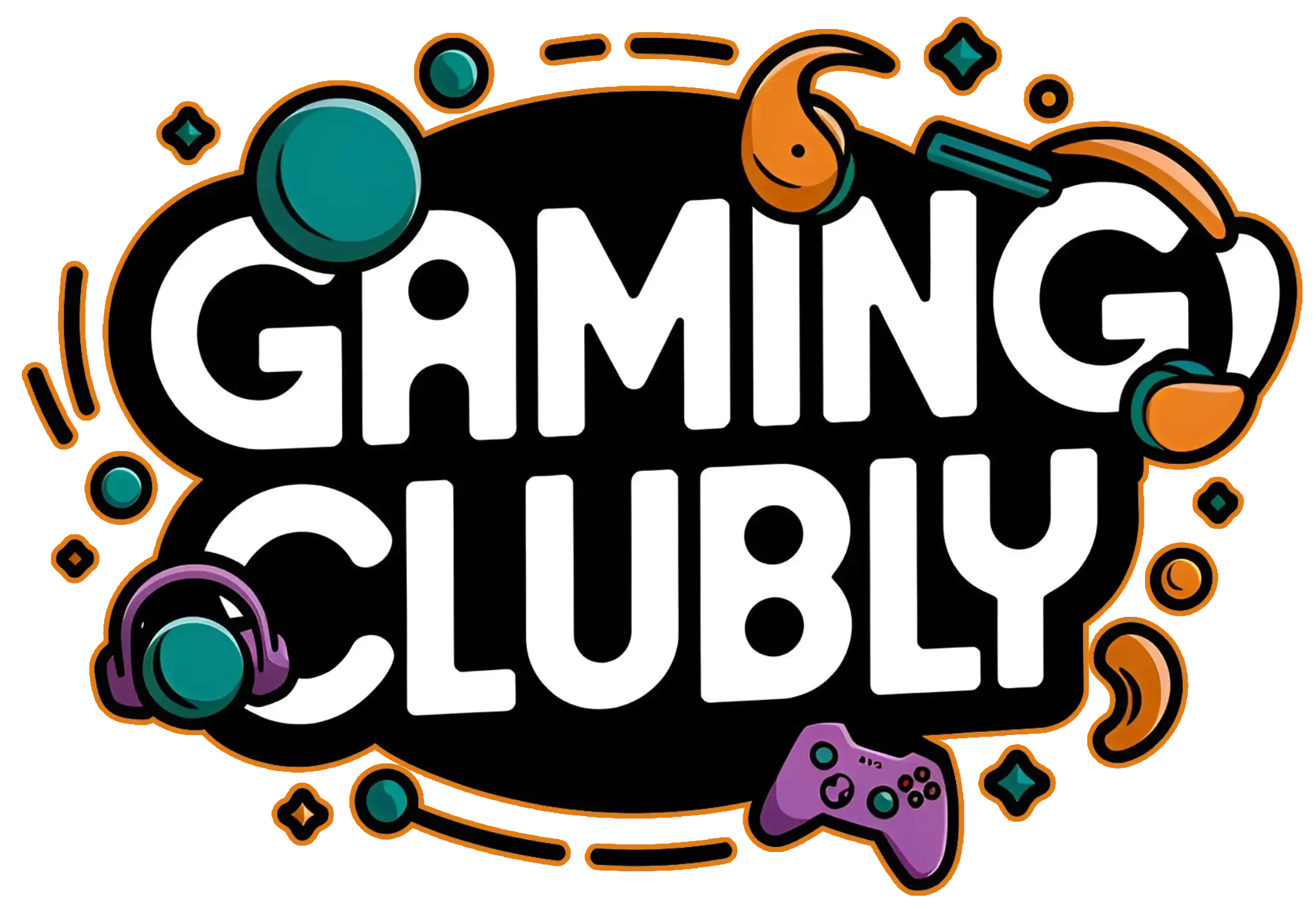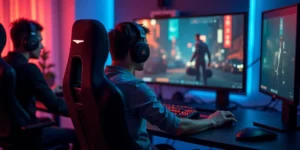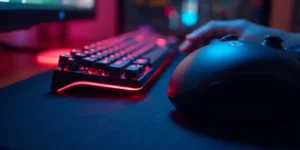Troubleshooting Common PC Gaming Issues: Expert Solutions for Smooth Gameplay
| Issue | Frequency | Impact |
|---|---|---|
| FPS Drops | High | Severe |
| Crashes | Medium | High |
| Input Lag | Medium | Moderate |
PC gaming can be a thrilling experience, but it’s not without its hurdles. Let’s dive into the most common issues gamers face:

#PCGamingIssues, #Troubleshooting, #TechSupport
- Frame rate instability
- Game crashes and freezes
- Audio glitches
- Connectivity problems in online games
“The difference between a good gaming experience and a great one often comes down to how well you can troubleshoot and optimize your system.” – John Carmack, legendary game developer
FAQ: Tackling PC Gaming Troubles
Q: Why does my game stutter even with a powerful GPU?
A: Stuttering can occur due to outdated drivers, background processes, or insufficient RAM. Ensure your drivers are up-to-date and close unnecessary applications.
“Fix Game Stuttering: Update Drivers & Minimize Background Load”
Q: How can I reduce input lag in competitive games?
A: Enable V-Sync, use a gaming mouse with a high polling rate, and consider a monitor with low input lag and high refresh rate.
Q: What causes sudden game crashes?
A: Crashes can result from overheating, corrupted game files, or incompatible software. Monitor temperatures and verify game files through your platform.
5 Essential Tips for Smooth PC Gaming
- Regularly update graphics drivers and Windows
- Optimize in-game settings for your hardware
- Keep your PC clean and well-ventilated
- Use an SSD for faster load times
- Invest in a reliable power supply unit
According to a recent survey by TechPowerUp, 68% of PC gamers experience performance issues at least once a month, highlighting the importance of proper troubleshooting skills.
Optimizing Your Gaming Rig for Peak Performance

| Component | Importance | Upgrade Priority |
|---|---|---|
| GPU | Critical | High |
| CPU | Very Important | Medium |
| RAM | Important | Medium |
Maximizing your gaming experience goes beyond troubleshooting. Let’s explore how to fine-tune your setup:
- Overclocking your GPU and CPU (with caution)
- Implementing custom cooling solutions
- Optimizing Windows for gaming
- Using game-specific tweaks and mods
“A well-optimized PC is like a finely-tuned race car – it’s all about squeezing out every bit of performance.” – Linus Sebastian, Tech YouTuber
FAQ: Enhancing Your Gaming Setup
Q: Is overclocking safe for my components?
A: When done correctly, overclocking can be safe. However, it may void warranties and requires proper cooling and power management.
Q: How much RAM do I need for modern gaming?
A: 16GB is the sweet spot for most games in 2023, but 32GB can future-proof your system and help with multitasking.
Q: Should I prioritize GPU or CPU upgrades?
A: Generally, GPU upgrades offer the most significant performance boost for gaming, but it depends on your current setup and the games you play.
Best Practices for a Superior Gaming Experience
- Create a comfortable and ergonomic gaming space
- Use monitoring software to track system performance
- Join Gaming Communities for tips and support
- Stay informed about PC News and hardware trends
- Experiment with different settings in Multiplayer Games for optimal performance
A study by the Entertainment Software Association found that 73% of PC gamers consider hardware performance crucial to their gaming enjoyment, emphasizing the importance of optimization.
“Hardware Optimization: Key to Superior PC Gaming Experience”
By following these guidelines and staying up-to-date with Game Dev Insights, you’ll be well-equipped to tackle any PC gaming challenge that comes your way. Remember, a smooth gaming experience is just a few tweaks away!
How to Troubleshoot Common PC Gaming Issues: Expert Solutions for Smooth Gameplay
Experiencing frustrating glitches during your gaming sessions? You’re not alone! Let’s dive into the world of PC gaming troubleshooting and equip you with the knowledge to conquer those pesky issues. Whether you’re a casual gamer or a hardcore enthusiast, these tips will help you get back to your favorite Multiplayer Games in no time.
1. Identifying and Fixing Performance Issues
| Issue | Possible Cause | Quick Fix |
|---|---|---|
| Low FPS | Outdated drivers | Update graphics drivers |
| Stuttering | Insufficient RAM | Close background applications |
| Freezing | Overheating | Clean PC and improve airflow |
To boost your gaming performance, follow these steps:
- Update your graphics drivers regularly
- Optimize in-game settings for your hardware
- Close unnecessary background applications
- Ensure proper ventilation for your PC
“The key to smooth gameplay is finding the right balance between visual quality and performance.” – John Carmack, legendary game developer
FAQ: Performance Troubleshooting
Q: Why is my game suddenly lagging?
A: Sudden lag can be caused by background updates, antivirus scans, or network issues. Check your task manager and internet connection.
“Quick Fixes for Sudden Game Lag: Check Updates, Scans, and Network”
Q: How often should I update my graphics drivers?
A: It’s recommended to check for driver updates monthly or before installing a new game.
Q: Can overclocking improve my gaming performance?
A: Overclocking can boost performance but may lead to stability issues. Proceed with caution and research thoroughly.
2. Resolving Connectivity Issues in Online Gaming

| Issue | Possible Cause | Solution |
|---|---|---|
| High Ping | Distance from server | Choose closer server regions |
| Disconnections | Unstable Wi-Fi | Use wired connection |
| Packet Loss | Network congestion | Optimize router settings |
Improve your online gaming experience with these tips:
- Use a wired Ethernet connection for stability
- Configure your router’s QoS settings
- Close bandwidth-heavy applications
- Consider a gaming-specific VPN
“A stable internet connection is the lifeblood of online gaming. Don’t let lag ruin your fun!” – Ninja, professional gamer
FAQ: Connectivity Troubleshooting
Q: How can I reduce my ping in online games?
A: Choose servers closer to your location, use a wired connection, and optimize your network settings.
Q: What’s the ideal internet speed for gaming?
A: For most games, a download speed of 15-20 Mbps and upload speed of 1-2 Mbps is sufficient.
Q: Can a VPN improve my gaming connection?
A: In some cases, a VPN can reduce ping and packet loss, especially when connecting to distant servers.
3. Tackling Software Conflicts and Crashes
Software conflicts can be a major headache for gamers. Here’s how to address them:
- Keep your operating system and games updated
- Verify game file integrity through the game launcher
- Disable overlays and third-party software temporarily
- Run games in compatibility mode if needed
Did you know? According to a survey by PC News, 68% of gamers experience at least one crash per week during their gaming sessions.
Pro Tip: Join Gaming Communities to share experiences and find solutions to common issues. The collective knowledge of fellow gamers can be invaluable!
Remember, troubleshooting is an essential skill for any PC gamer. By mastering these techniques, you’ll be well-equipped to handle most common gaming issues. Happy gaming!
For more in-depth guides and tips, check out our Game Dev Insights section, where industry experts share their knowledge on optimizing game performance.
Understanding PC Gaming Problems
| Issue | Possible Causes | Quick Fix |
|---|---|---|
| Low FPS | Outdated drivers, hardware limitations | Update drivers, lower graphics settings |
| Crashes | Overheating, software conflicts | Improve cooling, verify game files |
| Lag | Poor internet connection, server issues | Check network, choose closer servers |
PC gaming can be a thrilling experience, but it’s not without its challenges. Let’s dive into the most common issues and how to tackle them:
- Frame rate drops
- Game crashes and freezes
- Audio glitches
- Network lag in Multiplayer Games
“The difference between a casual gamer and a pro is often their ability to troubleshoot and optimize their gaming experience.” – John Carmack, legendary game developer
FAQ: Troubleshooting Basics
Q: Why does my game suddenly start lagging?
A: Sudden lag can be caused by background processes, outdated drivers, or overheating. Check your task manager and update your graphics drivers.
Q: How can I improve my game’s performance?
A: Start by updating drivers, closing unnecessary background applications, and adjusting in-game graphics settings.
Q: What should I do if my game keeps crashing?
A: Verify game files, update your OS and drivers, and check for hardware compatibility issues.
5 Essential Troubleshooting Steps
- Update graphics drivers and DirectX
- Verify game file integrity through the game launcher
- Check for Windows updates
- Monitor system temperatures
- Optimize in-game settings for your hardware
According to a recent survey by TechRadar, 68% of PC gamers experience performance issues at least once a month, with 23% facing problems weekly.
Advanced Troubleshooting Techniques

| Technique | Difficulty | Effectiveness |
|---|---|---|
| Overclocking | High | Very Effective |
| Registry Tweaks | Medium | Moderately Effective |
| Custom Game Configs | Low | Highly Effective |
For those looking to dive deeper into Game Dev Insights, understanding these advanced techniques can be crucial:
- Using monitoring software to identify bottlenecks
- Tweaking BIOS settings for optimal performance
- Creating custom resolution and refresh rate configurations
“Optimization is often the key to unlocking a game’s true potential on PC.” – Gabe Newell, Valve Corporation founder
FAQ: Advanced Troubleshooting
Q: Is overclocking safe for my gaming PC?
A: Overclocking can be safe if done correctly, but it requires knowledge and caution to avoid damaging your hardware.
Q: How can I reduce input lag in competitive games?
A: Enable ‘Game Mode’ in Windows, use a wired connection, and adjust in-game settings like V-Sync and frame limiting.
Q: What’s the best way to diagnose stuttering in games?
A: Use frame time analysis tools like MSI Afterburner to identify inconsistencies in frame delivery.
Pro Tips for Smooth Gaming
- Invest in an SSD for faster load times
- Regularly clean your PC to prevent dust buildup and overheating
- Join Gaming Communities for specific troubleshooting advice
- Keep an eye on PC News for the latest driver and game updates
- Use tools like DDU for clean driver installations

A study by PCGamesN found that 42% of performance issues can be resolved by simply updating drivers and optimizing in-game settings.



